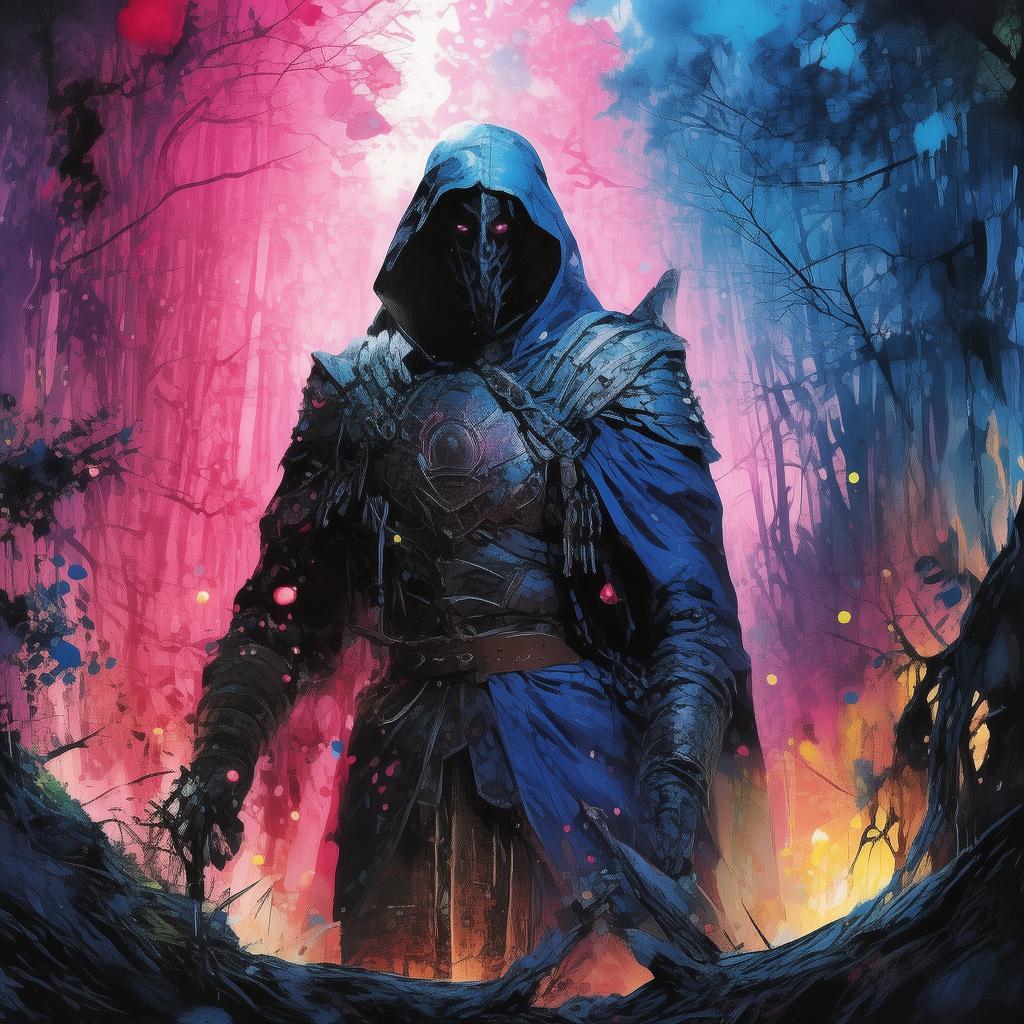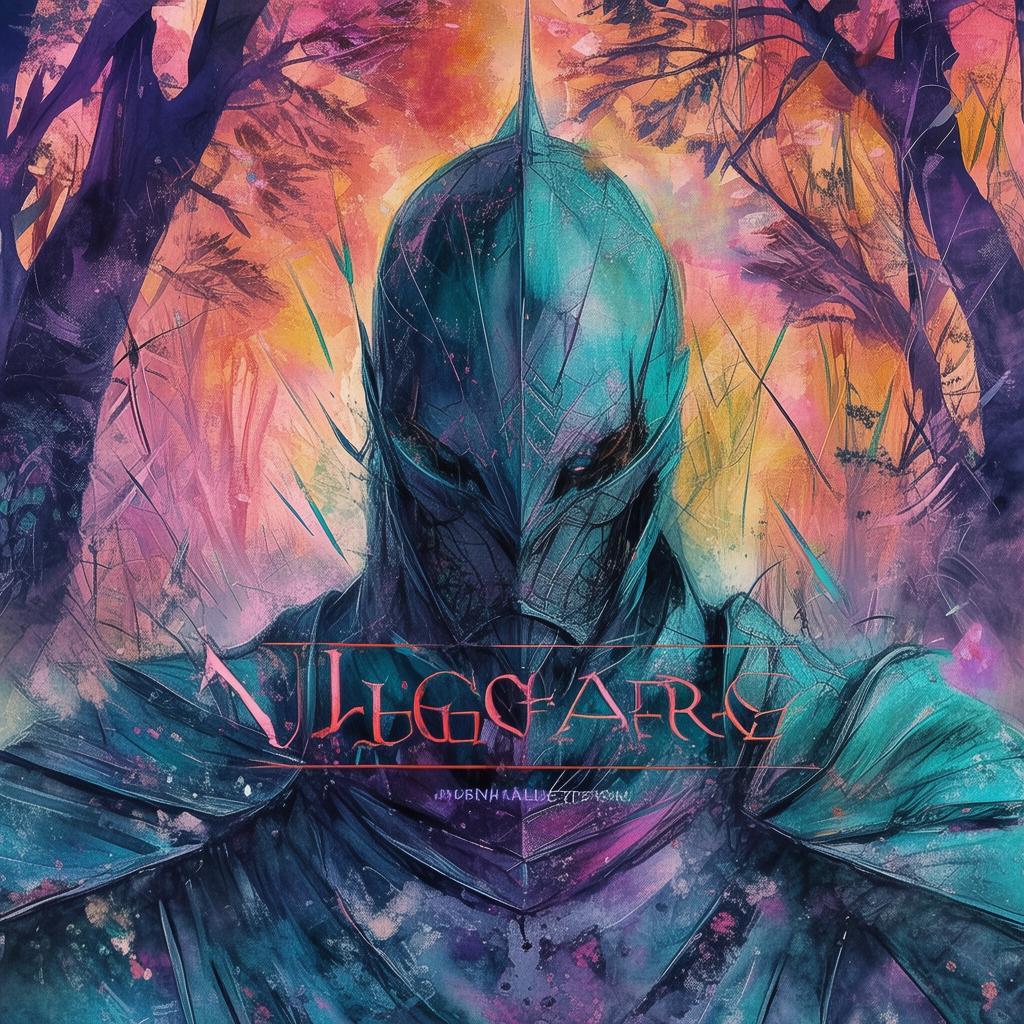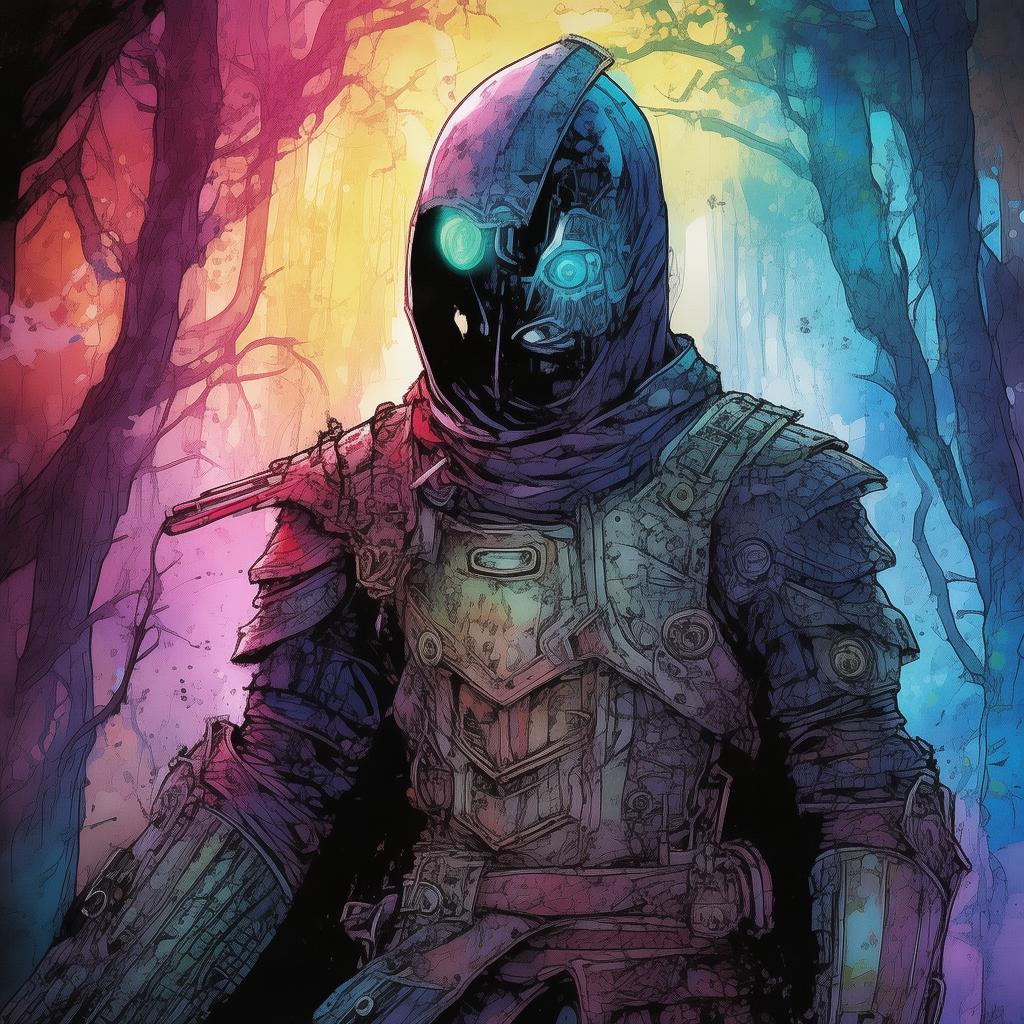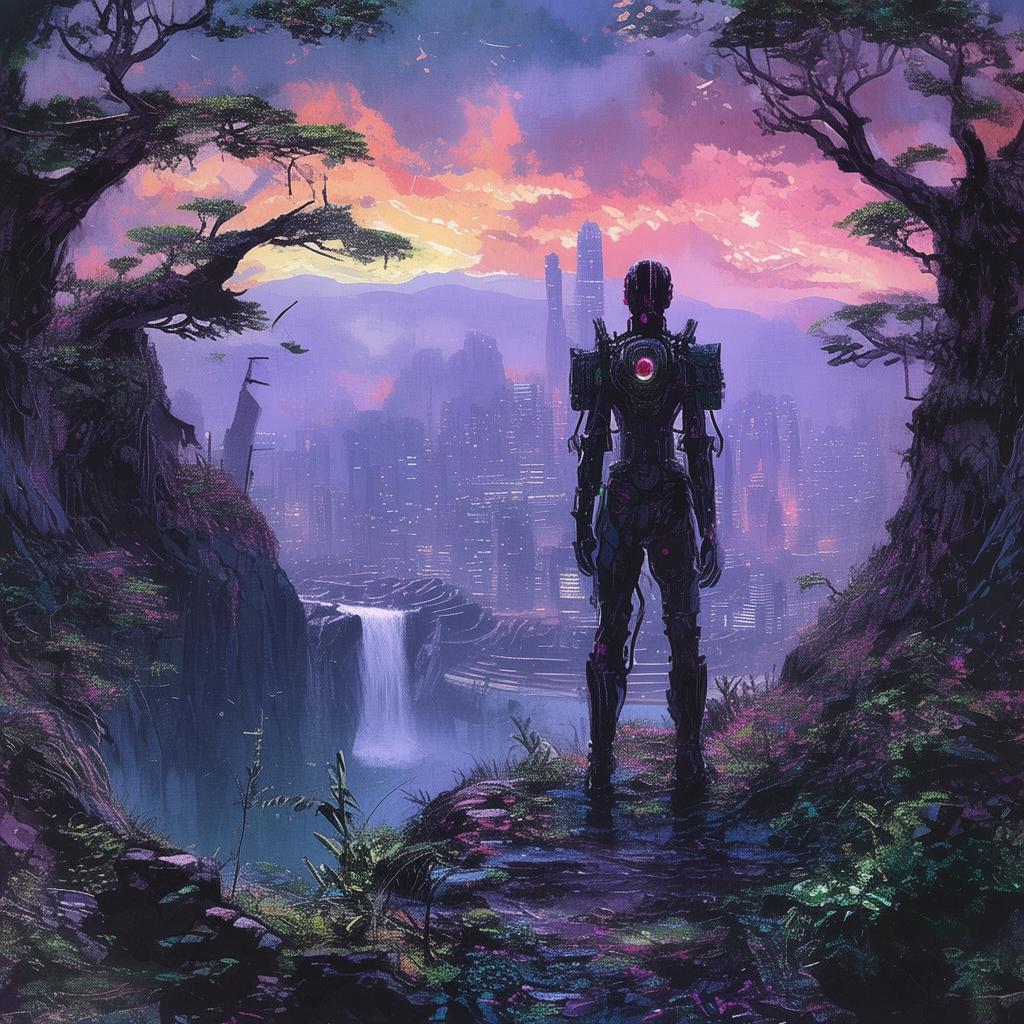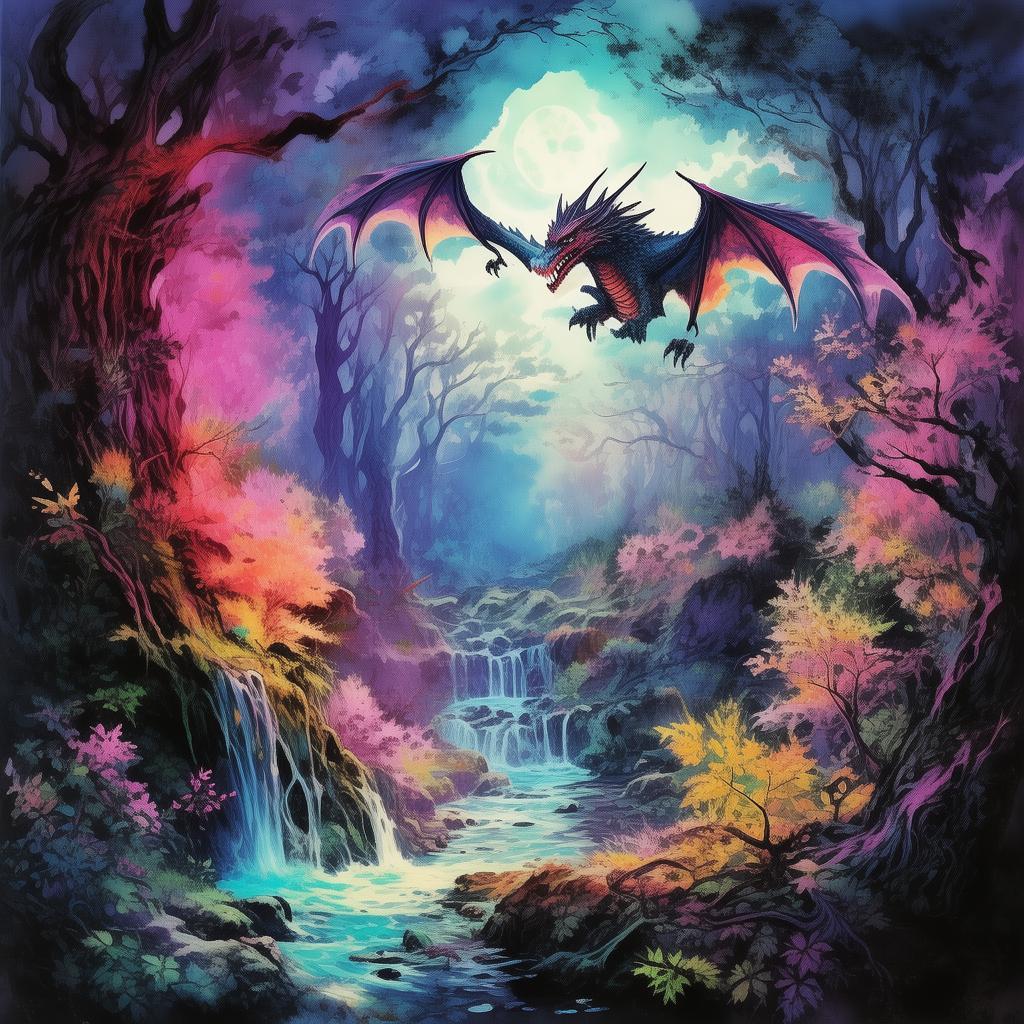The Godly Smith's Crucible
In the heart of Mount Olympus, where the gods walked and the heavens whispered, there was a forge that rumbled with the power of the gods. It was here that Hephaestus, the divine blacksmith, crafted the most wondrous of artifacts. His hammer was forged from the heart of the storm, his anvil was the rock from the depths of the sea, and his forge was the heart of the earth itself. The gods called him the Godly Smith, and the mortals called him the creator of legends.
It was during the twilight of a thousand years that Hephaestus, in his forge of molten metal and steam, began the creation of a weapon that would echo through the ages. The weapon was to be known as the Crucible, a blade so sharp it could slice through the fabric of the cosmos and a shield so strong it could block the mightiest of gods. The gods above were eager to see the result, for the Crucible was said to be the key to their eternal dominion.
As Hephaestus toiled, the crucible was formed, a vessel of fire and molten metal, its walls trembling with the heat of a thousand suns. But as the metal cooled, a whisper of doubt crept into the blacksmith's heart. He felt the weight of the gods' expectations, the weight of the legend he was to create, and the weight of his own mortality.
The legend of the Godly Smith's Crucible had been whispered for generations, but the true story was one of struggle and self-doubt. It was not just a tale of forging, but of the forging of one's own soul.
One day, as Hephaestus was finishing the final touches on the Crucible, the god Zeus appeared before him. "Hephaestus," he said, his voice echoing through the forge, "this weapon is for the gods. It is to be used to protect our realm and to ensure our eternal power."

Hephaestus looked at the finished product, his heart heavy with the burden of his creation. "But, Zeus," he replied, "what if the power of the Crucible is too great? What if it falls into the wrong hands?"
Zeus smiled, a chilling smile that sent shivers down Hephaestus' spine. "It will not fall into the wrong hands, Hephaestus. It will be wielded by the gods themselves. You have done well."
With that, Zeus vanished, leaving Hephaestus to ponder the implications of his creation. As he stood before the crucible, he felt a strange sensation, as if the metal itself was alive, as if it was whispering to him.
Days turned into weeks, and the crucible remained silent. Hephaestus, however, was not so fortunate. The gods began to pressure him, demanding that he finish the weapon before the moon turned full. The pressure mounted, and Hephaestus felt himself slipping into a madness he had not known before.
One night, as the forge was alight and the crucible began to glow, Hephaestus found himself alone with his thoughts. He had reached the point where he could no longer differentiate between his own doubts and the whispers of the gods. The heat from the crucible seemed to consume his very soul, and he knew that if he did not stop, he would be lost forever.
Then, as if in a dream, the forge seemed to come alive. The anvil moved of its own accord, the hammer struck with a force that could have shattered mountains, and the crucible itself began to sing a song of creation. Hephaestus was frozen in place, his eyes wide with a mix of fear and wonder.
The crucible, now complete, stood before him, its surface shimmering with an otherworldly light. But as he reached out to touch it, the crucible seemed to pulse with a life of its own, as if it were a sentient being. Hephaestus felt a chill run down his spine, and he knew that he had forged something far beyond the scope of any legend.
With a deep breath, Hephaestus stepped back. He knew that the crucible was not a weapon, but a tool of power and creation. It was a symbol of the balance between the gods and the mortals, and he had the power to decide its fate.
The next morning, Hephaestus presented the crucible to the gods. They were in awe, their eyes wide with wonder and fear. Hephaestus spoke to them, "This crucible is not a weapon. It is a symbol of balance. It can be used to protect, to create, or to destroy. The choice is yours."
The gods were silent for a moment, then Zeus stepped forward. "Hephaestus, you have created something that could change the very fabric of reality. We trust you to use it wisely."
Hephaestus nodded, knowing that the weight of his creation had been lifted. The crucible was a symbol of the balance between power and responsibility, and he had the honor of being its guardian.
And so, the legend of the Godly Smith's Crucible was born, not just a tale of forging, but a story of the human soul's struggle with its own destiny and the eternal dance between creation and destruction.
✨ Original Statement ✨
All articles published on this website (including but not limited to text, images, videos, and other content) are original or authorized for reposting and are protected by relevant laws. Without the explicit written permission of this website, no individual or organization may copy, modify, repost, or use the content for commercial purposes.
If you need to quote or cooperate, please contact this site for authorization. We reserve the right to pursue legal responsibility for any unauthorized use.
Hereby declared.
